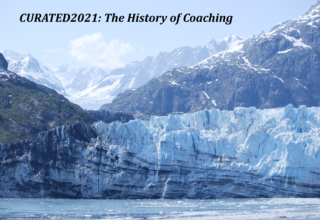
What are we doing here? It is my contention that no one existing discipline is sufficient to provide an academic or theoretical home for coaching, although many have and will continue to contribute to it. How might we differentiate such a discipline from others, and what might bind it together? Rather than beginning that consideration by examining external fields of study, I ask high-level questions that, in my experience, represent categories of issues that clients and organizations bring to coaches. Whether these categories are exhaustive or truly representative of coaching issues worldwide is an empirical question. It has been my intention in the discussion above to illustrate how starting with issues that characterize coaching can guide a multidisciplinary curriculum for coaching that draws on a multitude of scholarly disciplines. It is my hope that further research will clarify what categories and what specific disciplines are best suited to that curriculum.
I have also argued above that the assumptions of the systemic paradigm are fundamental to coaching, and that the emergence of coaching along with and in response to the shill across many disciplines to a systemic paradigm, lends coaching both uniqueness and coherence.
The answer to one further question relates to enacting a discipline of coaching: what are we doing here? This is a question about purpose. In the mechanistic paradigm, it might have been answered by referring to drives: We are here to pursue physiological needs or deep-seated psychological cathexis. Outside of scientific inquiry, the answer might be sought from faith or religion. A systemic approach assumes a dialectic relationship among heredity (brain/ body), environment (especially social relationships), and our own self-creative, mutually constructive powers. We formulate a sense of what it means to be truly, authentically ourselves. Moving toward and achieving goals consistent with that sense is immensely fulfilling as Alfred Adler (Ansbacher & Ansbacher, 1956) proposed at the beginning of the last century and positive psychology research on the meaningful life (Peterson, 2006) is indicating now. Making conscious decisions that keep ourselves moving toward that ideal of our highest purpose is the essence of potentiating. Connecting our every decision with that highest purpose is what lends our lives coherence. Applying coaching theory to our consideration of coaching as a discipline, we therefore need to determine the purpose of coaching in order to motivate the creation of a discipline.
Meeting the challenges of establishing a coaching discipline
What is the purpose of coaching? What is the purpose of organizational coaching? What is the purpose of a discipline that supports coaching, individual and organizational? I propose that pursuing this question is an important step in the development of a coaching discipline. I also propose three other, less global steps:
Download Article 1K Club

















